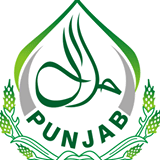 Following the promise of Islamic finance, the Islamic meat market is growing at a promising rate. From negligible levels a decade and half ago, global Halal meat market currently stands close to $300 billion, according to most recent estimate by Halal Industry Research Center.
Following the promise of Islamic finance, the Islamic meat market is growing at a promising rate. From negligible levels a decade and half ago, global Halal meat market currently stands close to $300 billion, according to most recent estimate by Halal Industry Research Center.
This demand partly comes from Muslims living in Muslim-minority states, as more than a quarter of world Muslim population lives in Muslim-minority states, of which 12 percent live in the Europe and Americas.
However, the demand for Halal meat does not only stem from minority populations and Diasporas: the Middle East with its 20 percent share in total Muslim population is one of the most significant Halal markets. Plus, Muslims are not the only ones buying Hall meat; as the high-quality associated with Halal food processing is attracting non-Muslim buyers as well.
The irony is that no Muslim country features among the top ten Halal meat exporters, according to Halal Research Council (HRC). The bigger irony is that despite boasting a sizable livestock (livestock constitutes 13.5 percent of GDP), Pakistan is ranked number 18th on the list of Halal meat exporters with a meager three percent share in worlds total Halal meat production.
With Rs1.3 trillion meat market, according to Engro Foods estimates, Pakistans climatic conditions are conducive for livestock industry. However, domestic producers have been slow to adopt modern techniques: lack of hygienic abattoirs restricts export as international standards are not met.
Smuggling of livestock to neighbouring Afghanistan and Iran is another constraint; as about $500 million worth of livestock is estimated to be smuggled across western borders. A stricter control on smuggling will not only promote meat export but also benefit the local leather and tanning industry by proxy.
In the last decade Pakistan witnessed an explosion in processed food industry, but the growth was mostly limited to processed poultry and seafood products. Al-Shaheer Company, one of Pakistans largest meat exporters, has only recently diverted its energies on local retailing through its flagship Meat One stores.
Similarly, Engro Foods plans to launch a pilot meat retail project in Lahore by December this year. The meat will be sourced from its existing milk infrastructure and cattle farms. The Company has kept its local meat retail business completely separate from Al-Safa, North American Halal meat brand acquired by the parent group in 2011. This implies that meeting the international standards for export is a lot more complex than making a quick buck by catering the local consumer.
But, all is not lost on the export front: Fauji Fertilizer Bin Qasim Limited (FFBL) announced its plans to diversify into the meat processing and export business, which is expected to yield an ROE of 30 percent, according to a report by brokerage BMA Capital.
These trends go on to show how big of a potential lies in Pakistan where local firms stand a good chance to come across the learning curve and grab a decent share of the global Halal meat market; what is needed is a big push. More on that later!



